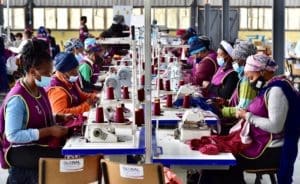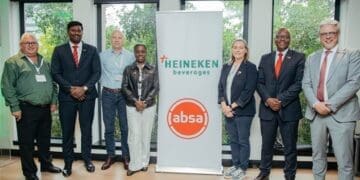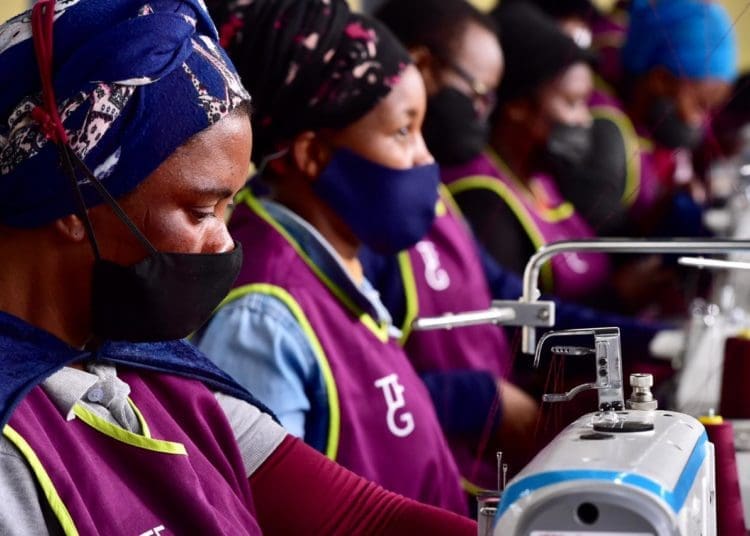The community of Msinga in KwaZulu-Natal once thrived on a shoemaking factory that provided more than 30,000 jobs. However, after South Africa became a democratic country, the factory shut down, leaving many residents destitute. Many years later, the community has a Retail-Clothing, Textile, Footwear and Leather (R-CTFL) Value Chain Masterplan.
This week, the government organised a media tour of the area to showcase how the plan was helping women and young entrepreneurs and had unlocked the job creation within the industry. One such person is Lelly Mntungwa, who is the founder and managing director of Msinga Clothing Factory. She told Vutivi News that she opened the factory to restore commerce and employment in the area.

Mntungwa said she established her company in 2012 using her own money, which she received a package from her previous employer. “I wanted to venture into the clothing and textile sector because of the massive employment opportunities,” she said. “The initial objective was also to organise youth and women who were involved in the sewing businesses within the area and provide them with technical training.”
However, Mntungwa said that it had been an arduous journey because she had very little assistance. “Thankfully, the government had let me lease the factory, so I knew that there was something positive on the horizon,” she said. Help came her way in 2019 when the province’s former economic development MEC Single Zikalala handed over 30 sewing machines.
Also, SW Seta trained 60 women and youth in manufacturing sanitary towels and masks and uniforms. Mntungwa said that thanks to the master plan, she received a large contract to work with one of the country’s leading retail chains. “We were fortunate to get a contract with TFG Foschini Group to be manufacturing clothes for them,” she said.
“We are honoured that we are the first factory in South Africa to align with the master plan and that we are the first South African, female-led factory to work with TFG,” Mntungwa said that in turn, she was offering help to anyone who wanted to enter the textile sector.
“I am saying that because I have been in the textile industry and have a footing in the retail sector, I will be able to guide and assist anyone who wants to start out,” she said. “However, it is important for future textile entrepreneurs to remember not to start a business so that the government can assist you because this type of mentality will ensure that the business does not succeed.”


























































